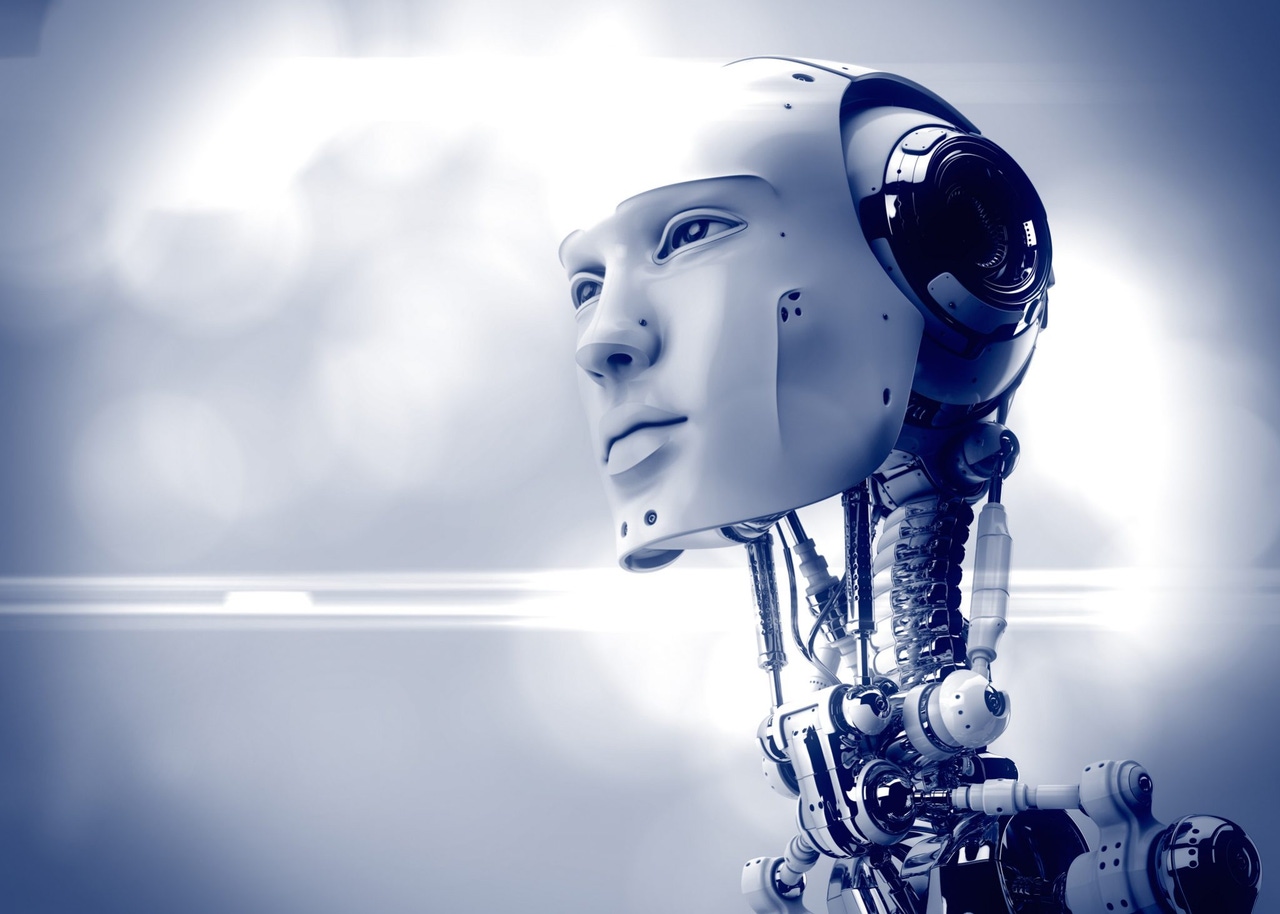Zero One: Are You Ready for AI?Zero One: Are You Ready for AI?
More and more companies are seeing the AI light, and if predictions prove right, this could be the year AI goes mainstream.

“If somebody like Google or Apple announced tomorrow that they had made [AI android] Ava, we would all be surprised, but we wouldn’t be that surprised.” –Alex Garland, writer-director of “Ex Machina” (2015)
Imagine a smart robot performing delicate surgery under the control of a surgeon. Or an artificial intelligence (AI) machine mapping genomic sequences to identify the link to Alzheimer’s disease. Or psychiatrists applying AI in natural language processing systems on the voices of patients to assess their risk of suicide.
You don’t have to imagine anymore, because all of this is happening right now. The great promise of AI – a technology once confined to sci-fi movies – lies within the grasp of everyday business. More and more companies are seeing the AI light, and if predictions prove right, this could be the year AI goes mainstream.
“It’s an incredible time, and it’s very hard to forecast, what can these things do?” said Google co-founder Sergey Brin, speaking at the World Economic Forum Annual Meeting in Davos-Klosters, Switzerland, last month.
To be sure, line-of-business executives (LOBs), the new shot-callers in tech, care little about pie-in-the-sky ideas. But they’ll pay close attention to real-world business outcomes and may be wondering if AI is right for their businesses. It’s a simple answer: If not AI today, AI tomorrow. That’s because AI has the potential to impact nearly every aspect of business, from predicting customer needs to optimizing operations and supply chains.
“AI can transform your business,” said Forrester analysts Martha Bennett and Matthew Guarini in a research note. “AI will be employed across enterprises, doing everything from engaging with customers and employees to automating and improving large elements of the operation.”
Related: Digital Business Transformation: A Channel Story
It’s still early days for AI, but that’s about to change.
A Forrester survey of business and tech professionals found only a small number of companies with AI implementations, yet more than half of companies said they plan to invest in AI in the next 12 months. Specifically, 37 percent plan to implement intelligent assistants for customers and 35 percent doing the same with cognitive products. Among AI adopters, 57 percent said improving the customer experience is the biggest benefit. Marketing and sales, product management, and customer support lead the AI charge.
Forrester puts AI deployments into five buckets: speech recognition, such as Amazon’s Alexa, Apple’s Siri, Google Assistant and Microsoft’s Cortana; machine learning, such as Netflix’s customer data-driven recommendations; image recognition; advanced discovery techniques, such as IBM Watson; and robotics and self-driving cars.
AI makes the most sense in industries with big data, such as healthcare. After all, AI feeds off of data but in a slightly different way than simple analytics. Whereas analytics software mines data to unearth trends and make predictions about the future, AI systems use data as a kind of sharpening stone to refine algorithms that produce targeted outcomes, such as diagnosing a type of cancer.
In a way, AI influences the future.
“With AI, we can begin to advance our analytics capabilities to personalize the interventions we roll out to patients and move from looking in the rearview mirror at what worked historically to looking at what could work in the future with predictive and prescriptive analytics,” said Forrester analysts Kate McCarthy and Nasry Angel in a research note.
Such awesome power has led to decades-worth of apocalyptic sci-fi movies and television shows, from “Blade Runner” (1982) to “Terminator” (1984) to “The Matrix” (1999) to “Battlestar Galactica” (2004-2009) to “Ex Machina” (2015) – all showing AI machines putting a beatdown on their human creators.
Before waving this off as merely entertainment, LOBs should keep in mind the fear that people have about AI. For instance, AI’s ability to gauge the likelihood of an individual becoming sick or getting in a car accident opens up a host of societal issues. Armed with this knowledge, will insurance companies raise rates?
Societal and privacy concerns are just a few of the many challenges facing AI adopters. As with any technology on the verge of taking off, there’s a severe technical skills shortage. LOBs must make sure they have the right talent to pull off AI projects, such as engineers to select and prepare data for AI and developers to customize AI software to the use case and fine tune AI algorithms. It’s a Herculean task. Forrester says training IBM Watson for a new diagnostic domain takes between six and 18 months, depending on how complicated the domain and how much data available.
Related: Rise of the IoT Architect
Poor talent can make a mess of things, even more so with AI. Like in the sci-fi movies, AI is as flawed as its human creators. Forrester gives an example of a machine-learning system trained to predict a patient’s risk for catching pneumonia when admitted to the hospital. Developers of the AI system forgot to put in critical information in the data set. As a result, Forrester says, the AI system told doctors to send home patients with existing asthma conditions – a high-risk category.
Human bias also raises its ugly head in AI systems. There have been reports of image-recognition AI automatically identifying a blinking person as Asian and AI systems designed to assist police discriminating against African Americans. Then there’s the infamous Tay, a Microsoft Twitter AI chatbot depicted as a pixelated young woman released in spring last year. After Twitter users tricked the chatbot into making outlandishly offensive remarks, Microsoft yanked Tay offline and apologized.
“AI systems can behave unpredictably,” Forrester’s Bennett and Guarini said. “In particular when working on complex or advanced systems, developers often don’t know how AI-powered programs and neural nets come up with a particular set of results… It gets dangerous when the software is left to take decisions entirely unsupervised.”
Despite its long history and inherent dangers, AI has come far in the last few years. Consider Google’s Brin, a computer scientist who admitted he didn’t pay much attention to AI in the 1990s because “everyone knew AI didn’t work.” Before becoming president of Google parent company Alphabet, Brin headed the Google X research group, which, in turn, worked on Google Brain, an AI project that began in 2011.
Today, Google Brain is part of the tech giant’s DNA.
“Fast-forward a few years, and now Brain probably touches every single one of our main projects, ranging from search to photos to ads to everything we do,” Brin said, adding, “We really don’t know the limits.”
 Based in Silicon Valley, Tom Kaneshige writes the Zero One blog covering digital transformation, big data, AI, marketing tech and the Internet of Things for line-of-business executives. He is eager to hear how AI is impacting your business. You can reach him at [email protected].
Based in Silicon Valley, Tom Kaneshige writes the Zero One blog covering digital transformation, big data, AI, marketing tech and the Internet of Things for line-of-business executives. He is eager to hear how AI is impacting your business. You can reach him at [email protected].
About the Author
You May Also Like


